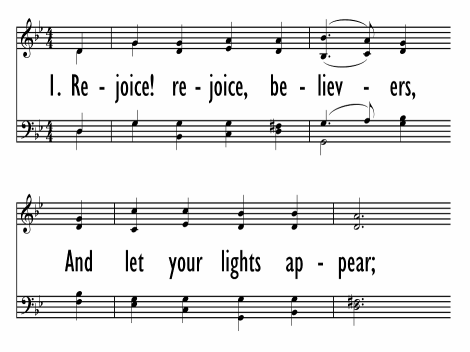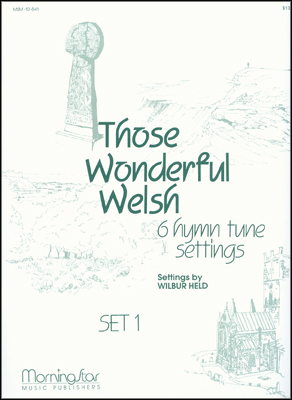- |
User Links
When Asked, Who Is My Neighbor
Hymn Information
- First Line
- When asked, who is my neighbor?
- Author
- Emily R. Brink
- Tune Name
- LLANGLOFFAN
- Tune Source
- Welsh, 19th c.
- Topic
- Culture, Community & Nation · Jesus Christ: Redeemer · Jesus Christ: Second Coming · Justice · Lament: Community · New Heaven and Earth · Poverty and Oppression · Hymns That Are Prayer
Copyright Information
- Text Copyright
- © 2012 The Center for Christan Ethics, Baylor University
- Tune Copyright
- Public Domain
- Reprint/Projection Information
- Words: Please contact the copyright holder for permission.
- Music: The Music is in the Public Domain; you do not need permission to project or reprint the Music.
Scripture References
- · · · · · · · · · · · · · ·
Further Reflections on Scripture References
Many Scripture references point us to the concern for justice as a strong element in the kingdom of God. Similarly, the call to work for justice and to overcome injustice is a common cry. For many of the following songs, see such passages as Deuteronomy 27:6, Psalm 9:9, 10:18, 64:1-6, 72:1-4, 119:134, 137:1-9, Proverbs 21:3, Isaiah 1:17, Micah 6:6-8, Amos 5:15, Acts 10:34-38, Colossians 4:1 and James 1:27.
Confessions and Statements of Faith References
Further Reflections on Confessions and Statements of Faith References
Any song or testimony about the cries that comes from our nations and cities must be met with confessional statements about the mission of the church as listed here.
Our World Belongs to God, paragraphs 41-43 are explicit and pointed about the mission of the church: “In a world estranged from God, where happiness and peace are offered in many names and millions face confusing choices, we witness—with respect for followers of other ways—to the only one in whose name salvation is found: Jesus Christ.”
Later, Our World Belongs to God, paragraphs 52-54 point to the task of the church in seeking public justice and functioning as a peacemaker: “We call on our governments to work for peace and to restore just relationships. We deplore the spread of weapons in our world and on our streets with the risks they bring and the horrors they threaten…”
The Belhar Confession, section 3 calls the church to be a peacemaker, and section 4 calls the church “to bring about justice and true peace.”
Our Song of Hope, stanza 10 calls the church to seek “the welfare of the people” and to work “against inhuman oppression of humanity.”
When Asked, Who Is My Neighbor
Tune Information
- Name
- LLANGLOFFAN
- Key
- f minor
- Meter
- 7.6.7.6 D
Recordings
When Asked, Who Is My Neighbor
Hymn Story/Background
Author Information
In 1977 she was appointed to the Psalter Hymnal Revision Committee, and in 1983 moved to Grand Rapids in a change of careers to become the first music and worship editor of the Christian Reformed Church. She was the founding editor of Reformed Worship; editor of the Psalter Hymnal (1987), Songs for LiFE (1994), Sing! A New Creation (2001, 2002); co-editor with Bert Polman of The Psalter Hymnal Handbook (1998), and editor of many other worship-related publications. Since 1984 she has been an adjunct professor at Calvin Theological Seminary, directing the seminary choir in the first years, and introducing courses on church music and worship before being granted emeritus status in 2009.
Her ecumenical work began with the Hymn Society in the United States and Canada, becoming the first woman president (1990-1992); in 2006 she was named a Fellow of the society in recognition of distinguished services to hymnody and hymnology. She served in both local and national offices of the American Guild of Organists, and has been a member for more than twenty years of the Consultation on Common Texts, serving as chair from 2008 to 2014.
In 2002, she became a Senior Research Fellow at the Calvin Institute of Christian Worship, contributing to The Worship Sourcebook and other publications; serving as program chair of the annual Symposium on Worship; and helping to plan and participate in worship conferences in more than fifteen countries.


 My Starred Hymns
My Starred Hymns







